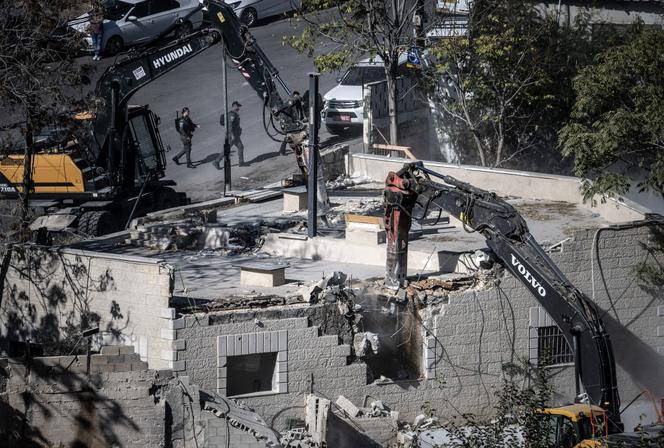


In the Silwan neighborhood of East Jerusalem, a group of parakeets chirps inside their large cage, perched against the back wall of a small courtyard shaded by lemon trees. This tranquil scene at the home of Otayba Obeh belies the turmoil, mere steps away, where a tangled heap of rubble – shattered masonry, twisted rebar, crushed furniture – marks the site of what was once the Al-Bustan community center. Named after its subdistrict in Silwan, the center was razed by Israeli authorities on November 13, deemed "illegally constructed" in this occupied and annexed part of the city.
The center was the only one of its kind in Silwan, a district devoid of any public space for its 30,000 or so Palestinian inhabitants. Beside the mountain of rubble, Odeh, who oversaw the center, has already resumed the center's open-air activities: scouting, taekwondo, traditional dance, and psychological assistance. "We mustn't give in, not for a moment," he said.
Back home, Odeh painstakingly pretends to enjoy enumerating his family's challenges: "We are a family of 21 living in three houses, in three different areas of Silwan. We are the subject of three proceedings – either for destruction or eviction – in three different courts. It is taking up all our money, all our time, all our energy, all our lives." His father shuffled through the gate, heading toward his modest cottage. "Tomorrow we're summoned to court again," Odeh informs him. The old man nods. His son watches him walking away with sorrow. "He worked for 48 years as a bus driver and never had the slightest problem, the slightest incident. And now, in the evening of his life, they want to throw him out on the street, taking away the only thing he owns: his house."
Created in 2012, the Al-Busan community center was supported by the French government and 21 local authorities. Ties were forged between French towns and the Silwan residents, and half a million euros were disbursed over the years to support the structure to which a thousand young people from the Palestinian neighborhood went for recreation, sports training, and socializing. The funding was precious, though perhaps less so than the support shown to the center and its inhabitants, threatened by orders to demolish their homes.
All this was destroyed by the power shovels. While a diplomatic source downplayed the notion that its destruction was a targeted act against France, the move underscored the broader indifference of the international community to Israel’s policies in East Jerusalem. Those policies aim to transform Palestinian neighborhoods through waves of demolitions, activists and rights groups say.
You have 51.94% of this article left to read. The rest is for subscribers only.
